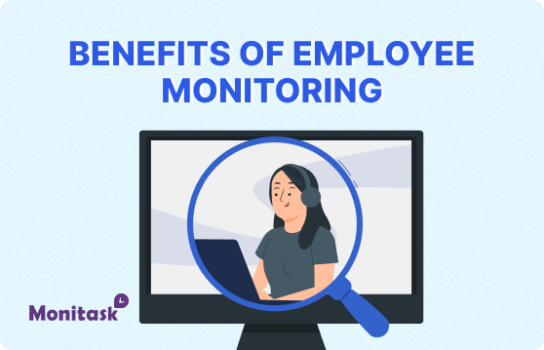Employment Contract
Understanding Employment Contracts: A Comprehensive Guide
An employment contract is a crucial document that defines the relationship between an employer and employee. It outlines the terms and conditions of employment, setting clear expectations for both parties involved. This comprehensive guide will delve into the intricacies of employment contracts, their importance, key components, and legal implications.
What is an Employment Contract?
An employment contract is a legally binding agreement between an employer and employee that establishes the rights, responsibilities, and obligations of both parties. It serves as a foundation for the employment relationship, providing clarity and protection for all involved.
These contracts can take various forms, including written, verbal, or implied agreements. However, written contracts are generally preferred as they provide a clear record of the terms agreed upon, reducing the potential for misunderstandings or disputes later on.
Types of Employment Contracts
There are several types of employment contracts, each suited to different employment situations:
1. Permanent Employment Contracts
These are the most common type of employment contracts. They're used for full-time or part-time employees who are expected to work for an indefinite period. These contracts typically include details about regular working hours, salary, benefits, and termination conditions.
2. Fixed-Term Contracts
Fixed-term contracts are used when an employee is hired for a specific period or to complete a particular project. These contracts have a predetermined end date and are often used for seasonal work, maternity cover, or project-based assignments.
3. Zero-Hours Contracts
In these contracts, the employer doesn't guarantee any minimum working hours, and the employee isn't obligated to accept any work offered. These are often used in industries with fluctuating demand, such as retail or hospitality.
4. Freelance or Independent Contractor Agreements
These contracts are used for self-employed individuals who provide services to a company but are not considered employees. They typically have more flexibility but fewer rights and benefits compared to regular employees.
Key Components of an Employment Contract
A comprehensive employment contract should include several key elements:
1. Job Title and Description
This section outlines the employee's role, responsibilities, and duties. It should provide a clear understanding of what is expected from the employee in their position.
2. Start Date and Duration
The contract should specify when the employment begins and, if applicable, when it ends (for fixed-term contracts).
3. Compensation and Benefits
This crucial section details the employee's salary or wage, payment schedule, and any additional benefits such as health insurance, pension contributions, or bonuses.
4. Working Hours and Location
The contract should specify the expected working hours, including any flexibility arrangements, overtime policies, and the primary work location.
5. Probationary Period
Many contracts include a probationary period during which the employer can assess the employee's suitability for the role. The length of this period and the conditions should be clearly stated.
6. Leave Entitlements
This section outlines the employee's rights to various types of leave, including annual leave, sick leave, maternity/paternity leave, and any other specific leave policies.
7. Confidentiality and Non-Disclosure Agreements
These clauses protect the company's sensitive information and trade secrets by prohibiting the employee from sharing confidential information during and after their employment.
8. Intellectual Property Rights
This section clarifies who owns the intellectual property created by the employee during their employment.
9. Termination Conditions
The contract should outline the conditions under which either party can terminate the employment relationship, including notice periods and grounds for immediate dismissal.
10. Dispute Resolution
This section outlines the procedures for resolving any disputes that may arise during the course of employment.
The Importance of Employment Contracts
Employment contracts serve several crucial purposes:
1. Legal Protection
A well-drafted employment contract provides legal protection for both the employer and employee. It sets out the terms of the relationship in a clear, legally binding manner, which can be referred to in case of any disputes.
2. Clarity and Expectations
By clearly outlining the roles, responsibilities, and expectations of both parties, employment contracts help prevent misunderstandings and conflicts.
3. Confidentiality and Intellectual Property Protection
Employment contracts often include clauses that protect the company's confidential information and intellectual property, which is crucial in today's competitive business environment.
4. Compliance with Labor Laws
A properly drafted employment contract ensures that the employment relationship complies with relevant labor laws and regulations.
Legal Considerations in Employment Contracts
When drafting or reviewing employment contracts, several legal considerations must be taken into account:
1. Compliance with Employment Laws
Employment contracts must comply with local, state, and federal employment laws. This includes minimum wage requirements, working hour restrictions, and anti-discrimination laws.
2. At-Will Employment
In many jurisdictions, employment is considered "at-will," meaning either party can terminate the relationship at any time without cause. However, the contract may modify this doctrine by specifying conditions for termination.
3. Non-Compete Clauses
Some contracts include non-compete clauses that restrict an employee's ability to work for competitors after leaving the company. The enforceability of these clauses varies by jurisdiction and must be carefully considered.
4. Mandatory Arbitration
Some contracts include clauses requiring disputes to be settled through arbitration rather than in court. While these can be beneficial, they must be carefully drafted to ensure fairness and compliance with local laws.
Negotiating Employment Contracts
Both employers and employees should approach contract negotiations thoughtfully:
For Employers:
- Be clear about expectations and requirements.
- Ensure the contract aligns with company policies and culture.
- Consider the long-term implications of contract terms.
- Be prepared to explain and justify contract terms.
- Seek legal advice to ensure compliance and protect the company's interests.
For Employees:
- Carefully review all terms before signing.
- Seek clarification on any unclear or concerning clauses.
- Consider negotiating key terms such as salary, benefits, and working conditions.
- Don't be afraid to ask for changes or additions to the contract.
- Consider seeking legal advice, especially for high-level or complex contracts.
Common Pitfalls in Employment Contracts
Several common mistakes can lead to issues with employment contracts:
1. Ambiguous Language
Vague or unclear language can lead to misunderstandings and disputes. Contracts should be written in clear, specific terms.
2. Incomplete Contracts
Failing to address all necessary aspects of the employment relationship can leave both parties vulnerable to misunderstandings and legal issues.
3. Overly Restrictive Clauses
Clauses that are too restrictive, such as broad non-compete agreements, may be unenforceable and could potentially harm the employer's reputation.
4. Failure to Update
Employment contracts should be regularly reviewed and updated to reflect changes in the employment relationship, company policies, or relevant laws.
The Future of Employment Contracts
As the nature of work continues to evolve, employment contracts are likely to change as well. Some trends to watch include:
1. Remote Work Provisions
With the rise of remote work, contracts are increasingly including clauses related to home office setups, data security, and work-from-home policies.
2. Flexibility
More contracts are incorporating flexible working arrangements, including flexible hours and locations.
3. Skills-Based Contracts
As the job market becomes more dynamic, some companies are moving towards skills-based contracts that focus on the employee's capabilities rather than a specific job title.
4. AI and Automation Considerations
As AI and automation become more prevalent in the workplace, contracts may need to address issues related to job security, retraining, and the use of AI in decision-making processes.
Conclusion
Employment contracts are a fundamental aspect of the employer-employee relationship, providing structure, clarity, and protection for both parties. By understanding the key components, legal considerations, and best practices in drafting and negotiating these contracts, both employers and employees can ensure a fair, transparent, and mutually beneficial working relationship.
As the world of work continues to evolve, so too will employment contracts. Staying informed about current trends and legal requirements is crucial for anyone involved in the hiring process or entering into an employment agreement. Whether you're an employer drafting a contract or an employee reviewing one, taking the time to understand and carefully consider each aspect of the employment contract can lead to a more successful and satisfying work experience for all involved.


